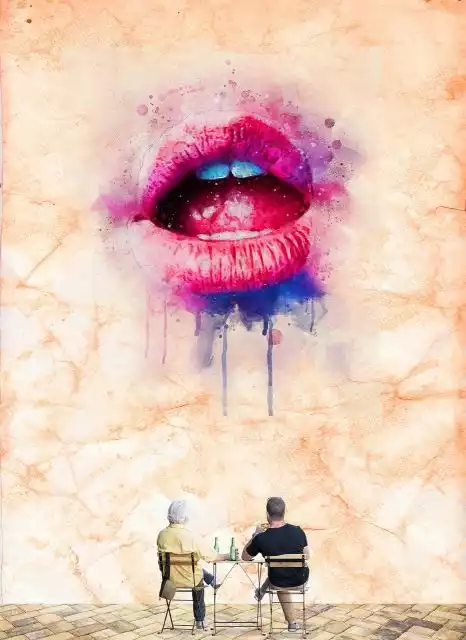UK arts bodies urge incoming government to stand up for the culture sector

In the Evening Standard, the columnist Anne McElvoy wrote: “Despite having covered the campaign trail over the last month, I had not heard any senior figure give any detail or signal enthusiasm for the place of the arts and culture in the great national reboot.”
The signatories have actually jointly laid out “a roadmap to maintain the visual arts for the long-term”, claims the joint policy. “Our galleries, workshops, museums and visual artists deal with significant obstacles that prevent their ability to prosper and endure,” adds the statement of belief, which highlights the “crucial function of the aesthetic arts in the UK’s ₤ 126bn innovative sectors”. The phone call to action likewise underscores that the UK art market, according to the British Art Market Federation, is worth ₤ 9.7 bn, while worrying that artists from Banksy to Tracey Emin “are instrumental fit the UK’s international recognition and soft power”.
More financial investment is required for visual arts spaces to flourish, claims the policy. Preserving and increasing the Gallery Exhibit Tax Alleviation to include performance and online art, electronic online exhibitions, sales of job, educational activity is key, states the joint strategy.
More financial investment is needed for visual arts areas to thrive, states the policy. Retaining and expanding the Museum Gallery Exhibition Tax Alleviation to include efficiency and online art, digital online exhibits, sales of work, educational task is essential, says the joint strategy. Budget-friendly studios should likewise be on the schedule, it states, along with exploring the possibility of a Visitor Levy to money society.
The joint record proposes integrating “visual proficiency right into the national educational program at Key Stage 2, making certain every schoolchild checks out a social organisation yearly”, among other proposals. “Testimonial the national educational program, raising the schedule of innovative topics and change the EBaccalaureate [academic certification] to include them to make certain the pipeline of abilities and expertise,” say the organisations.
Twenty one UK visual arts organisations have provided a cumulative statement of belief getting in touch with the future federal government of the United Kingdom to back the country’s troubling visual arts sector after the 4 July general election. The organisations– that include DACS, Contemporary Visual Arts Network, Art Fund, Gallery Environment Union, Crafts Council and A-N– are calling for more investment in imaginative education in colleges, closer links to Europe and protecting totally free entry to galleries and museums.
The organisations also intend to select a “consultant commissioner” to advocate for the demands and rate of interests of self-employed imaginative employees and aesthetic musicians (both this and the Smart Fund policy were lately put forward by the Society, Media, and Sport Board in their Designer Compensation report released in March). Long-term objectives ought to on the other hand focus on including event payments right into copyright legislation and giving monetary security for disabled artists, states the statement of belief.
Under a section qualified “identifying the worldwide power of UK visual arts”, the statement of belief asks for freedom of motion for artists and various other imaginative workers within the European Union. Rejoining the EU’s Creative Europe program, which granted EUR89.5 m to UK-based imaginative organisations in between 2014 and 2018, is an additional purpose.
In 2015 Sally Bacon, the former director of the Clore Duffield Foundation, wrote in a piece for The Art Paper that “the high-level searching for [of The Arts in Schools: Foundations for the Future record] is the lack of worth ascribed to the arts within the state education and learning system in England, with the arts deprived at every stage, which access to the arts can as a result no longer be thought in either the secondary or main system.”
An additional proposal in the statement of belief involves establishing a Smart Fund focused on developing new collective licensing income for artists, directors, performers and writers when copyright-protected works are created, shared, or distributed, throughout electronic tools.
, we do not get to the creative sector till page 69, in the penultimate section, and they lead with a nebulous guarantee concerning a devoted instruction system … Work price somewhat much better, offered that they’re dedicated to youngsters researching imaginative topics until they are 16, and plan a National Songs Education Network, which will certainly use details on programs for kids and moms and dads. Their policy is light on information.”
The notaries have actually collectively outlined “a roadmap to maintain the visual arts for the long term”, states the joint statement of belief. “Our galleries, workshops, galleries and visual artists deal with substantial challenges that hinder their capability to flourish and survive,” adds the policy, which highlights the “vital role of the aesthetic arts in the UK’s ₤ 126bn imaginative sectors”. The phone call to activity likewise highlights that the UK art market, according to the British Art Market Federation, is worth ₤ 9.7 bn, while stressing that artists from Banksy to Tracey Emin “are crucial in forming the UK’s international recognition and soft power”.
In the Evening Requirement, the columnist Anne McElvoy wrote: “Despite having covered the campaign path over the last month, I had actually not heard any elderly number offer any information or signal interest for the place of the arts and society in the wonderful national reboot.”
1 Art Market Federation2 British Art Market
3 visual arts
« Anton van Dalen, who imaginatively chronicled life in Lower Manhattan, has died, aged 86‘There is no panic’: artist Pavlo Makov on working in the beleaguered Ukrainian city of Kharkiv »
